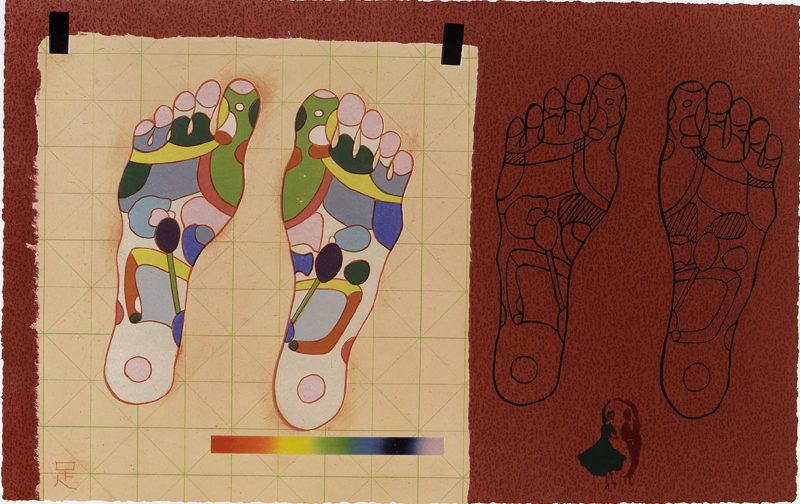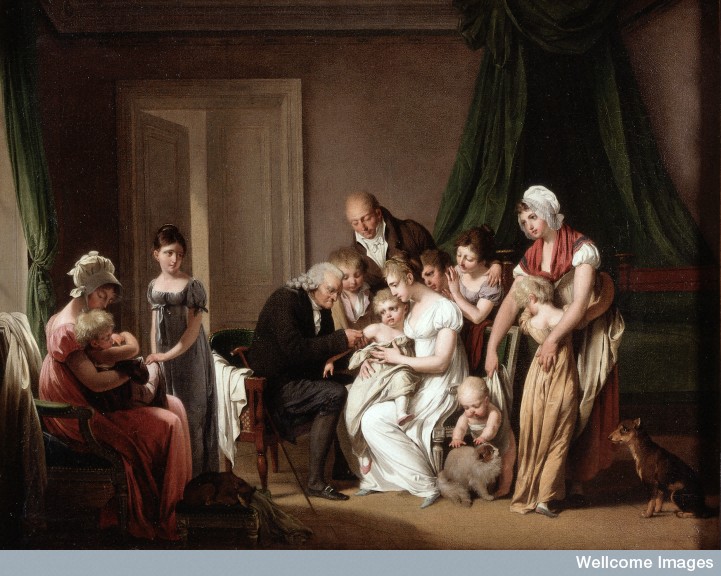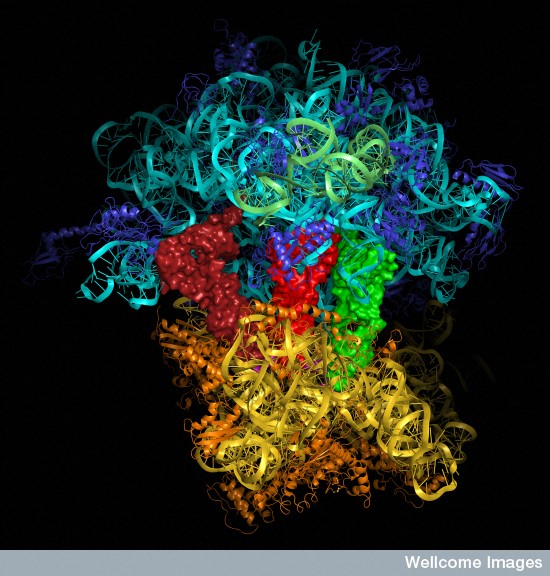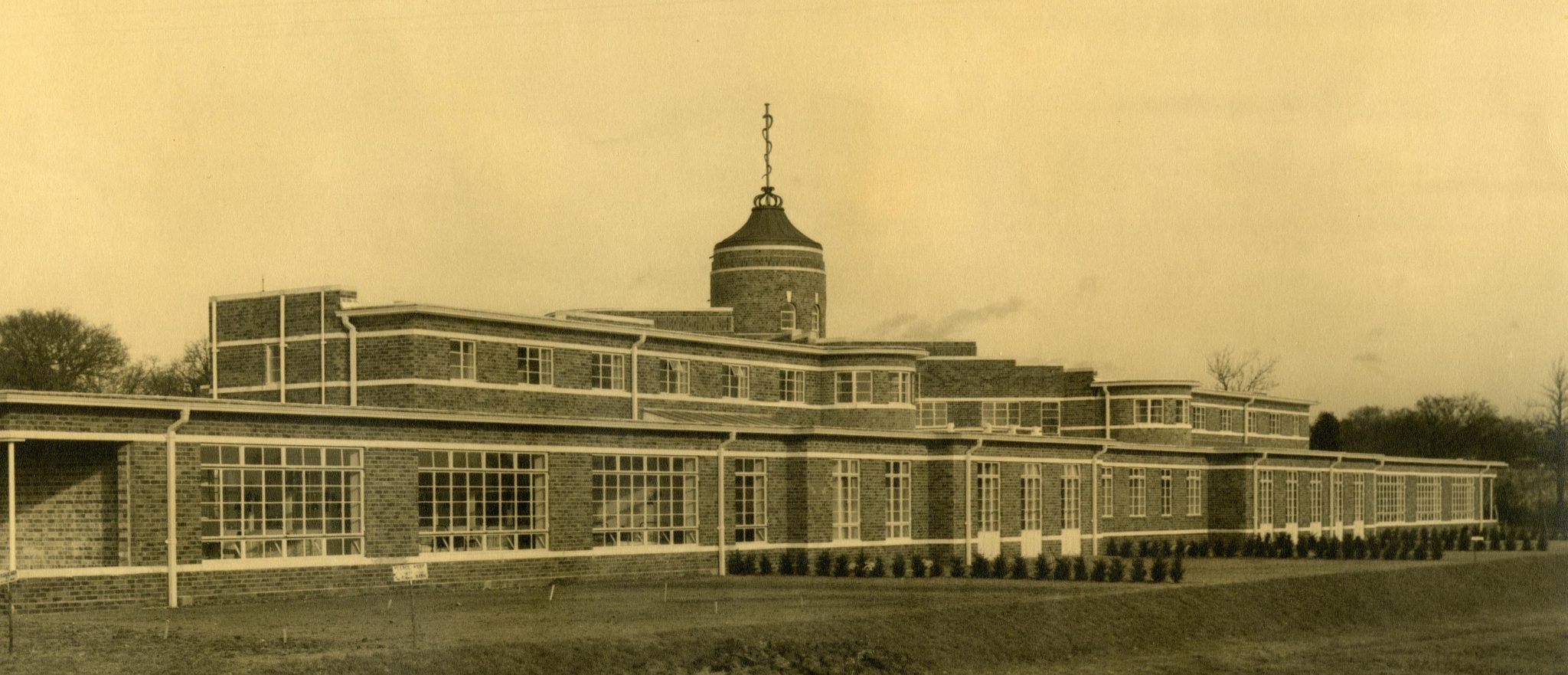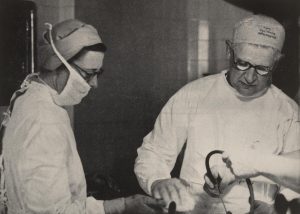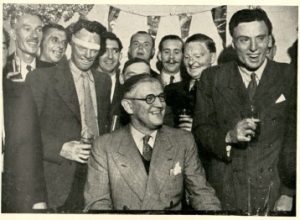The Queen Victoria Hospital Archive Project
Posted onBy Joanna McConville, Archivist: Wellcome Trust Project, West Sussex County Council
Here at West Sussex Record Office (WSRO) in Chichester, we are drawing to the end of a major project involving the archive of the Queen Victoria Hospital in East Grinstead, which became known during the Second World War as the centre for the treatment of the ‘Guinea Pig Club’, the RAF and Allied Air personnel who suffered severe burns and underwent major reconstructive procedures under the care of pioneering surgeon Sir Archibald McIndoe.
The origins of the project date back to 2013, when the hospital’s archive was first deposited at WSRO. Comprising a substantial, if incomplete series of administrative records, together with a number of McIndoe’s working papers and a vast collection of patient case files including those of the celebrated ‘Guinea Pigs’, the archive was recognised to be one of national and international interest and significance which shed light on the revolutionary plastic surgery carried out at the hospital by McIndoe and his team, work which formed a key part of the history and development of plastic surgery as a discipline. McIndoe’s approach was particularly notable in his concern with his patients’ long-term rehabilitation and re-integration into society following their injury and disfigurement and the Guinea Pig Club which was founded by a group of the airmen in 1941 provided a support network throughout their lives.
In 2015, WSRO and the Queen Victoria Hospital NHS Foundation Trust successfully submitted a bid to the Wellcome Trust for £72,952 to fund the cataloguing and preservation of the archive and the digitisation of over 600 Guinea Pig patient files, in addition to the digitisation of a collection of medical drawings produced at McIndoe’s behest by Mollie Lentaigne, a young VAD nurse who worked at Queen Victoria Hospital during the war. These drawings are held at the East Grinstead Museum, who have partnered WSRO in the project alongside the Guinea Pig Club and Queen Victoria Hospital. Work on the project began in earnest in 2016 with the appointment of the first of two Project Archivists and a dedicated Preservation and Digitisation Assistant.
As the current Project Archivist, the experience of working with this collection has been both a privilege and an eye-opener on a number of levels, offering up engagement with some fascinating archival material and inspirational human stories, but also presenting some considerable practical challenges. Some time after making an initial decision on what information to capture when cataloguing each patient file, it became clear that with over 15,000 files altogether and a very limited number of months to carry out the work, something would have to change in order to meet project deadlines. The original pro forma used for recording patient information was significantly amended to enable cataloguing at a rate which would allow the project to be completed on time.
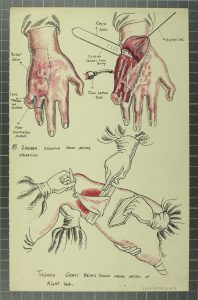
The nature and content of the material has also tested our resources to a degree which was perhaps not fully anticipated. The patient case files, especially those of the Guinea Pigs, are image-heavy, filled with graphic photographs depicting individuals with severely disfiguring and distressing injuries, captured at all stages of treatment and recovery. On one level I was struck by how my tolerance for viewing such images increased and how normalised they became, yet there was always a tipping point, an image which I would wish had remained unseen, and which lingered uncomfortably in my mind long after the file was firmly shut and stored away in the strongroom. It raised some interesting questions for us on how to manage the possible psychological and emotional impacts of exposure to some types of archival material.
Issues around sensitivity and access have loomed large, as is perhaps inevitable with medical records, and particularly a collection which is comparatively recent and which contains such a high proportion of confidential patient files. This has been probably the steepest learning curve for me as a new archivist, and I have been immensely grateful for the input and advice of experienced colleagues both at WSRO and in the wider archival community. With the prominence and degree of interest in McIndoe and the Guinea Pig Club, and the value of the archive, especially the Guinea Pig patient files, as a unique resource which has great research potential, there has always been a delicate line to tread between our two-fold responsibilities: maintaining confidentiality and ensuring compliance with legislation on the one hand, and promoting and raising awareness of a remarkable collection on the other.
Following almost two years of work, the project has resulted in the creation of over 25,000 digital images and an extensive catalogue including all of the patient case files which will shortly be made available online. We are now in the final phase of organising various outreach events and activities to help ensure that knowledge of the archive – and of the compelling history of Queen Victoria Hospital, the Guinea Pig Club and the work of Archibald McIndoe can reach as wide an audience as possible.
- Check out westsussexrecordoffice.wordpress.com for our ongoing series of blog posts which will be continuing throughout the year.
- For anyone near Chichester, I will be giving an illustrated talk on the collection on the evening of Tuesday 27th March 2018 at 7 pm entitled ‘Stories from the surgeon’s table.’ Full details and how to book here: https://www.westsussex.gov.uk/leisure-recreation-and-community/history-and-heritage/west-sussex-record-office/whats-on-at-the-record-office/
- Our exhibition ‘The Queen Victoria Hospital Archive Project’ will be touring venues around the county, beginning at WSRO on 19th March 2018. Check out details under Special Events: https://www.westsussex.gov.uk/leisure-recreation-and-community/history-and-heritage/west-sussex-record-office/whats-on-at-the-record-office/
- An end of project event at the Queen Victoria Hospital in East Grinstead will be held on the evening of Friday 20th April, register via Eventbrite.
